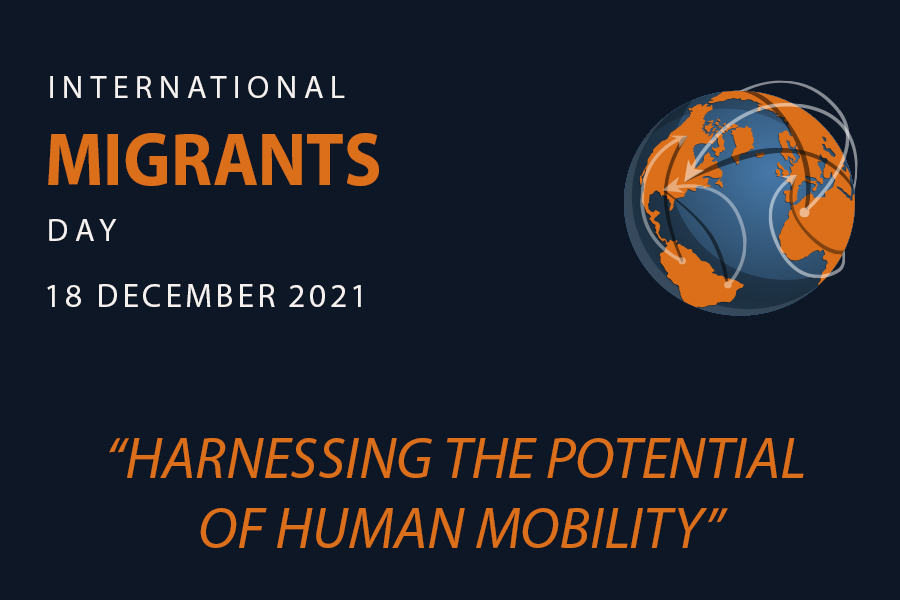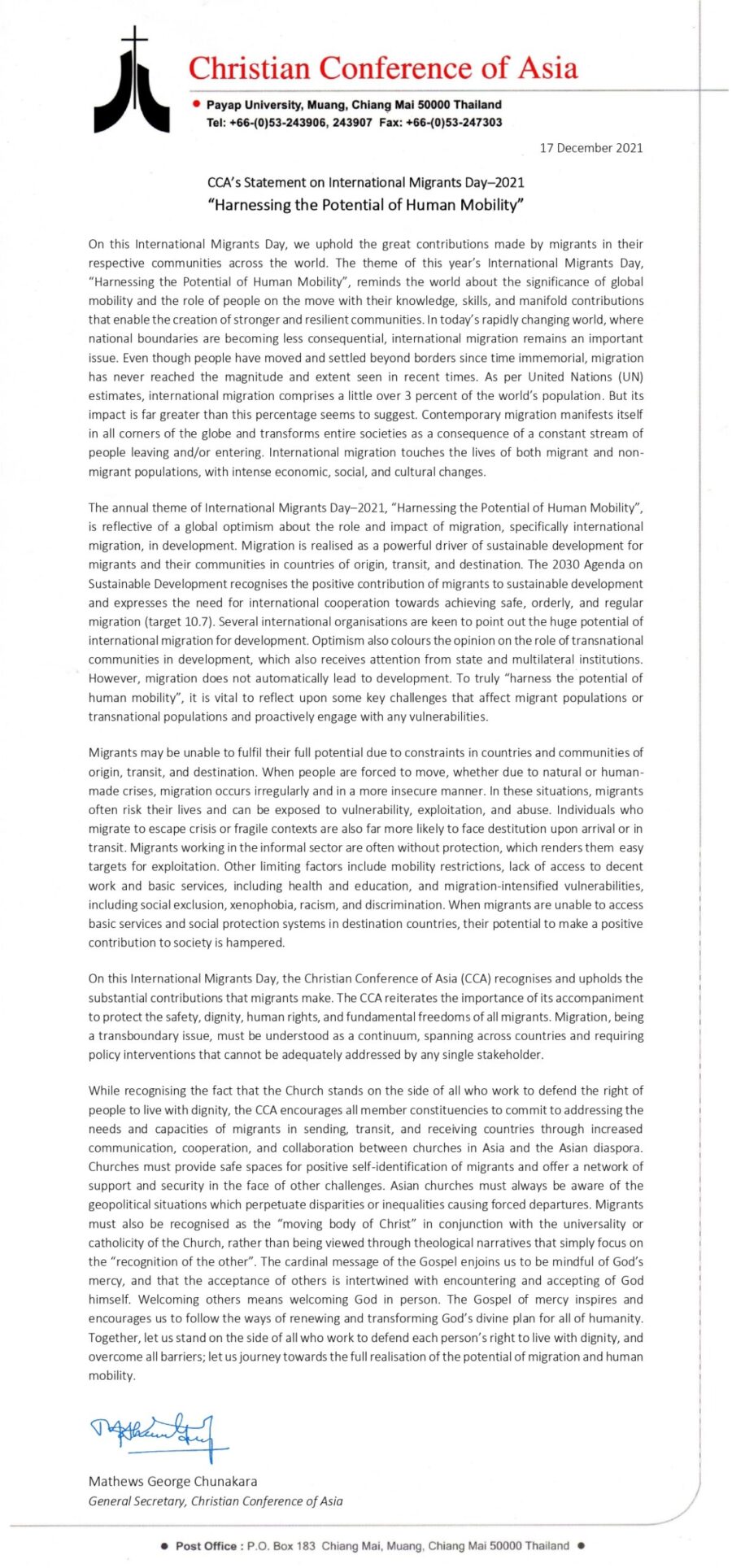CCA General Secretary says migrants must be recognised as “moving body of Christ” on International Migrants Day–2021

CHIANG MAI: On the occasion of International Migrants Day, which falls on 18 December, the General Secretary of the Christian Conference of Asia (CCA) Dr Mathews George Chunakara called upon Asian churches to recognise migrants as the “moving body of Christ”.
“While recognising the fact that the Church stands on the side of all who work to defend the right of people to live with dignity, the CCA encourages all member constituencies to commit to addressing the needs and capacities of migrants in sending, transit, and receiving countries through increased communication, cooperation, and collaboration between churches in Asia and the Asian diaspora. Churches must provide safe spaces for positive self-identification of migrants and offer a network of support and security in the face of other challenges,” reads the statement.
“The annual theme of International Migrants Day–2021, ‘Harnessing the Potential of Human Mobility’, is reflective of a global optimism about the role and impact of migration, specifically international migration, in development. Migration is realised as a powerful driver of sustainable development for migrants and their communities in countries of origin, transit, and destination…However, migration does not automatically lead to development. To truly ‘harness the potential of human mobility’, it is vital to reflect upon some key challenges that affect migrant populations or transnational populations and proactively engage with any vulnerabilities,” said the CCA General Secretary.
The full text of the CCA’s Statement on International Migrants Day–2021 can be found below:











